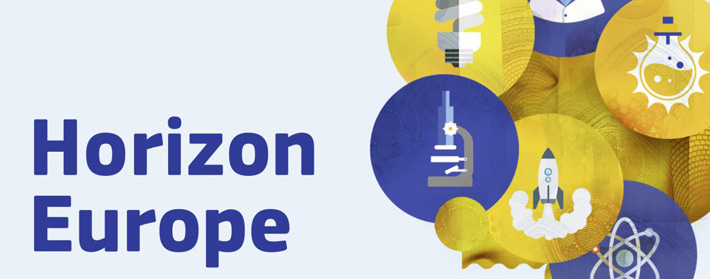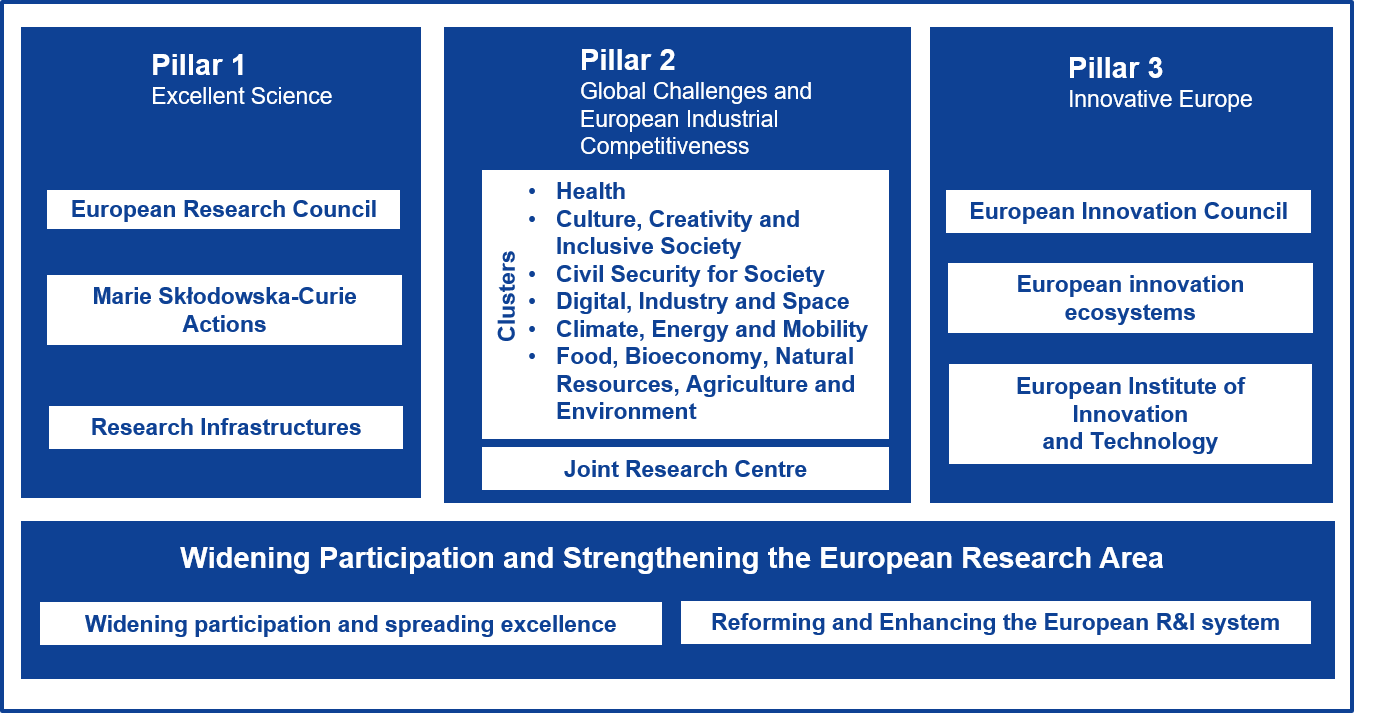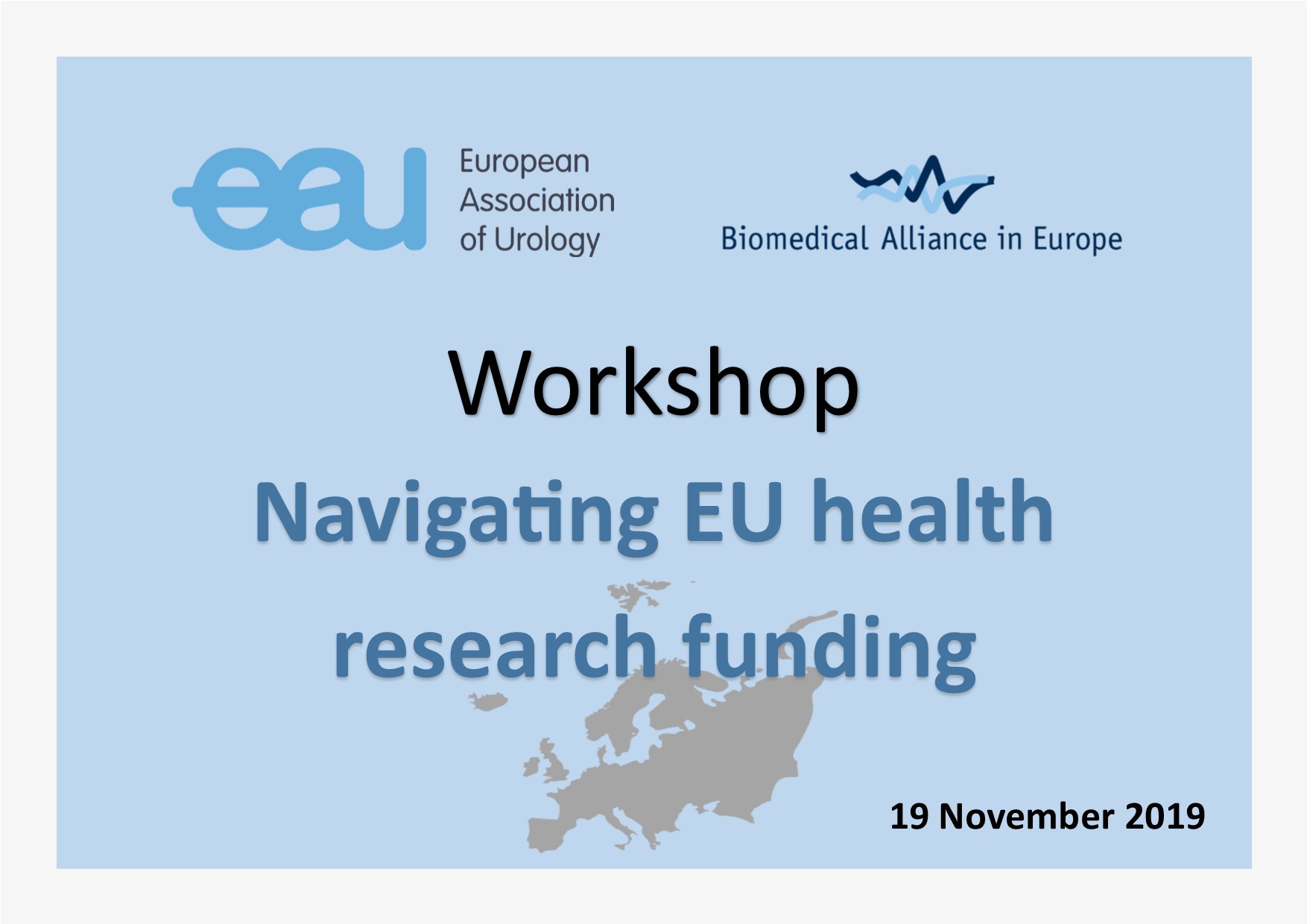Horizon Europe and its role in supporting health research

Horizon Europe, the EU’s new research and innovation funding programme for the period 2021-2027, will provide around €100 billion in funding opportunities to researchers around Europe and beyond. It can be difficult to navigate as there are opportunities for funding within different pillars and clusters. Specifically focussed on health, there is a dedicated health cluster, a mission on cancer and a public–private partnership on innovative health technologies. In addition, research on e.g. digitalisation in health, health data or open science could be financed within other elements of the programme.
This post sets out to provide a brief introduction to Horizon Europe and the health research funding landscape in Europe. In addition, we draw your attention to an open workshop on the various opportunities within Horizon Europe, which the BioMed Alliance is organising on 19 November in Brussels (contact [email protected] for more information).
Background:
Horizon Europe is the successor to Horizon 2020 and its proposal was published in June 2018 by the European Commission. Since then, negotiations have been ongoing and the European Parliament and the Council of the EU reached a provisional agreement on Horizon Europe in March 2019, right before the elections in May.
While most aspects are now agreed upon, the budget and the scope of future cooperation with third countries, and with the United Kingdom after Brexit, remain unclear. Moreover, the Strategic Programme setting out the implementation of Horizon Europe is still being discussed.
During the negotiations, there were some points of discussion. For example, while the European Parliament proposed a budget of 120 billion euros, the Council is reluctant to accept this as it constitutes an increase compared to the original proposal. The budget is therefore not set yet, but it is part of the discussions of the EU budget as a whole (called the Multiannual Financial Framework).
Structure:
Horizon Europe is the successor to Horizon 2020 and is structured around three pillars which all include multiple elements:
- Open science
- Global Challenges and Industrial Competitiveness
- Open Innovation
Health cluster:
The cluster for health[1] is included in Pillar 2 entitled ‘Global Challenges and Industrial Competitiveness‘, with an allocated budget of 7.7 billion. The overall aims of this cluster will be to support the UN’s Sustainable Development Goals calling for universal health coverage for all at all ages by 2030.

The cluster is divided into several areas of intervention that were defined on the basis of key challenges to public health in the EU:
- Health throughout the Life Course
- Environmental and social health determinants
- Non-communicable and rare diseases
- Infectious Diseases, including poverty-related and neglected diseases
- Tools, Technologies and Digital Solutions for Health and Care, including personalised medicine
- Health Care Systems
Cancer Mission:
The new ‘Missions’ are a key novelty within Horizon Europe. They target global challenges and the health-related mission will be dedicated to cancer. The Cancer mission will focus on all aspects of cancer care including prevention, detection, care and quality of life. The mission will fall under the health cluster and a Mission Board has been assigned to lead it. These mission boards will advise the European Commission how to define and implement each Mission area.
New Public–Private Partnership for health
Other important elements within Horizon Europe are the public–private partnerships on different topics. For health, the proposed Innovative Health Initiative (IHI), would be the successor to the Innovative Medicines Initiative (IMI) while broadening its scope from pharmaceuticals to include diagnostics, medical devices, medical imaging and biotech. Like the IMI, the IHI will be a partnership between industry and the European Commission which fosters cooperation between all stakeholders in the health field including academics and researchers. The details governing the IHI still have to be decided on and multiple stakeholders in the health research field are contributing to the proposal.
Next steps
The European Parliament and the Council of the EU have concluded a provisional agreement on Horizon Europe, which is subject to discussions on the EU budget and the strategic planning of Horizon Europe. Most likely, the budget will be decided on before the end of the year. By the end of 2019, the Strategic Programme is expected to be adopted and an implementation strategy for Horizon Europe should be finalised as well.
Conclusion:
Horizon Europe is a complex and ambitious new research programme that can provide many opportunities to health researchers that know their way around the programme. Horizon Europe will be launched on 1 January 2021 after which calls for proposals will be progressively opened.
[1] For more details on the proposed health cluster, see page 19-23 of the following document: https://eur-lex.europa.eu/resource.html?uri=cellar:7cc790e8-6a33-11e8-9483-01aa75ed71a1.0002.03/DOC_2&format=PDF

More information on BioMed Alliance activities including the workshop are available: here

Join the FEBS Network today
Joining the FEBS Network’s molecular life sciences community enables you to access special content on the site, present your profile, 'follow' contributors, 'comment' on and 'like' content, post your own content, and set up a tailored email digest for updates.